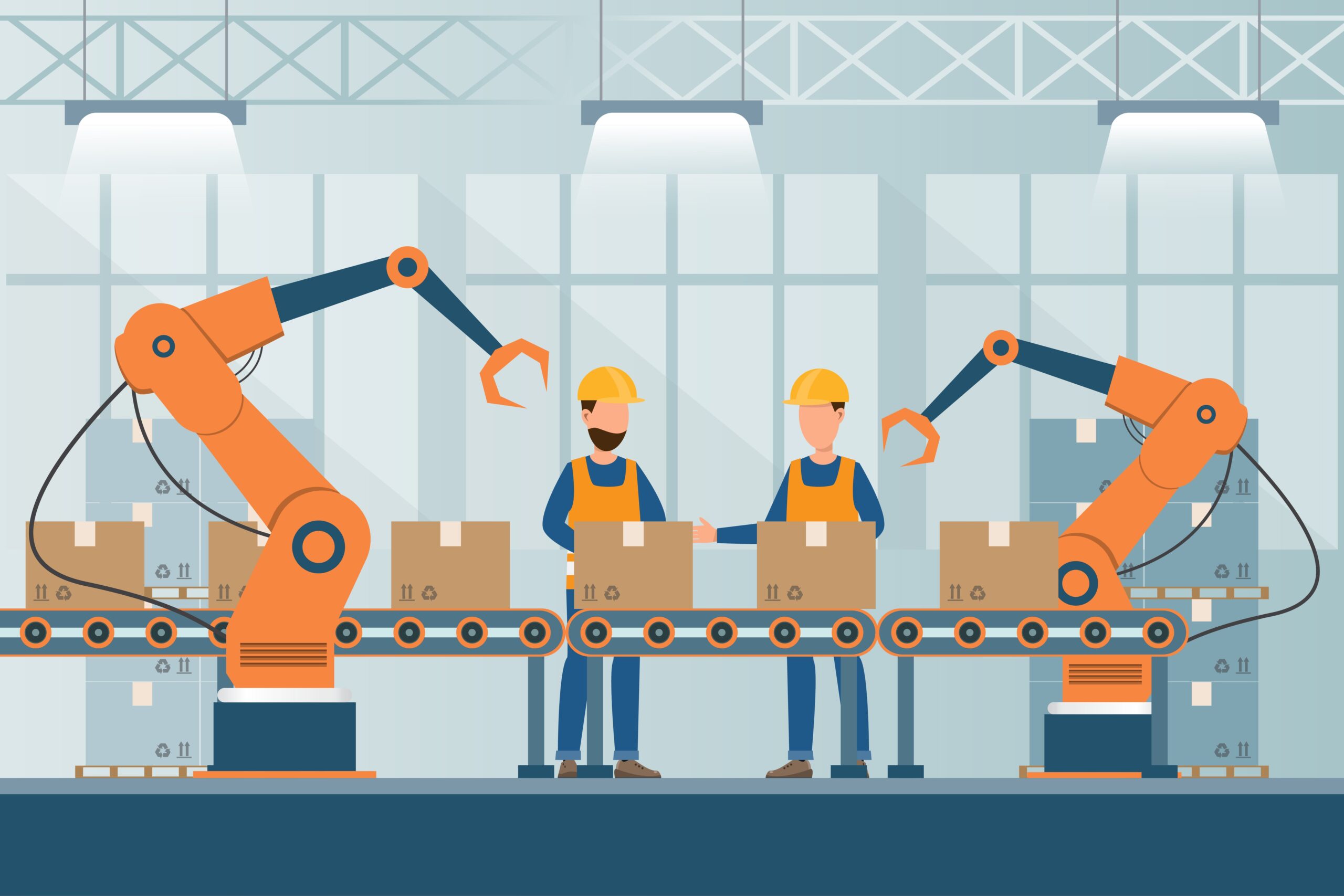UNDERSTANDING MANUFACTURING
Manufacturing is the process of transforming raw materials into finished products through various means, including machining, assembly, and automation.
This intricate process involves several stages, from design and prototyping to production and quality assurance.
The essence of the process lies in its ability to produce goods at scale, meeting the demands of both consumers and businesses while maintaining high standards of quality and efficiency.
KEY PROCESSES
Casting: Pouring molten material into a mold where it solidifies into the desired shape, used for making complex shapes and large components.
Joining/Fabrication: Techniques such as welding, soldering, and brazing combine materials to form a single piece, crucial for creating durable and strong assemblies.
Machining: Removing material from a workpiece using tools like lathes, mills, and drills, essential for achieving precise dimensions and finishes.
Assembling: Bringing together various components to form a complete product, ensuring proper fit, form, and function.
Testing: Conducting quality checks and performance assessments to ensure the final product meets specified standards and requirements.
MANUFACTURING & IE TASKS
Time Standard Implementation
Establishing time standards for all tasks
Analyzing work methods to improve efficiency
Ensuring consistency and standardization in the process
Data Analysis
Collecting and analyzing production data
Monitoring key performance indicators (KPIs)
Making informed decisions to enhance productivity
Utilizing data to support the establishment and refinement of time standards
Process Design and Optimization
Developing efficient work processes.
Streamlining production workflows.
Implementing automation and robotics.
Facility Layout and Planning
Designing ergonomic workspaces.
Planning plant layouts to enhance efficiency.
Optimization of people, equipment, and material
Supply Chain Logistics
Optimizing logistics and distribution networks.
Managing inventory and materials.
Reducing lead times and improving delivery performance.
LEAN
In lean manufacturing, industrial engineers utilize tools like Value Stream Mapping (VSM) to visualize and analyze the entire production process and identify Waste in the Process.
Tools such as Kaizen events and 5S methodology are employed to systematically eliminate waste and standardize procedures, fostering a culture of continuous improvement.
By employing these tools and techniques, industrial engineers play a pivotal role in optimizing processes, enhancing quality, and increasing efficiency in workplace operations.

Applications of Manufacturing
Manufacturing serves a wide array of sectors with specific applications that drive innovation and efficiency:
Automotive: Producing vehicles with precision and innovation.
Electronics: Creating high-tech gadgets and components.
Pharmaceuticals: creating safe and effective medications.
Food and Beverage: Ensuring safe and efficient food production processes.
Aerospace: building aircraft, engines, and spacecraft components supports the aerospace industry’s stringent safety and performance standards.
Toys and Games: Producing toys and games enhances entertainment and educational value for consumers.
Printing and Publishing: Manufacturing printed materials and packaging labels supports both educational and commercial needs.
Defense and Military: Producing weaponry, military vehicles, and defense electronics supports national security needs.
Medical and Healthcare: Manufacturing medical supplies and equipment ensures the availability of essential healthcare products.
FUTURE OF MANUFACTURING
The future of manufacturing is bright, with ongoing advancements promising to revolutionize the industry. Key trends include:
Automation Solutions: Increasing reliance on robotics and automation to enhance precision, speed, and safety in manufacturing, significantly reducing human error and operational costs.
Augmented Reality (AR): AR is transforming manufacturing by enabling real-time visualization and interaction with virtual models, improving training, maintenance, and design processes.
Artificial Intelligence: Utilizing big data and AI to predict trends, optimize production schedules, and enhance supply chain management.
Advanced Materials: Innovations in materials science, such as nanomaterials and bioplastics, will lead to stronger, lighter, and more sustainable products.
Smart Factories: integrating systems and advanced technologies, smart factories enable seamless communication and coordination across all manufacturing stages, enhancing efficiency and flexibility.